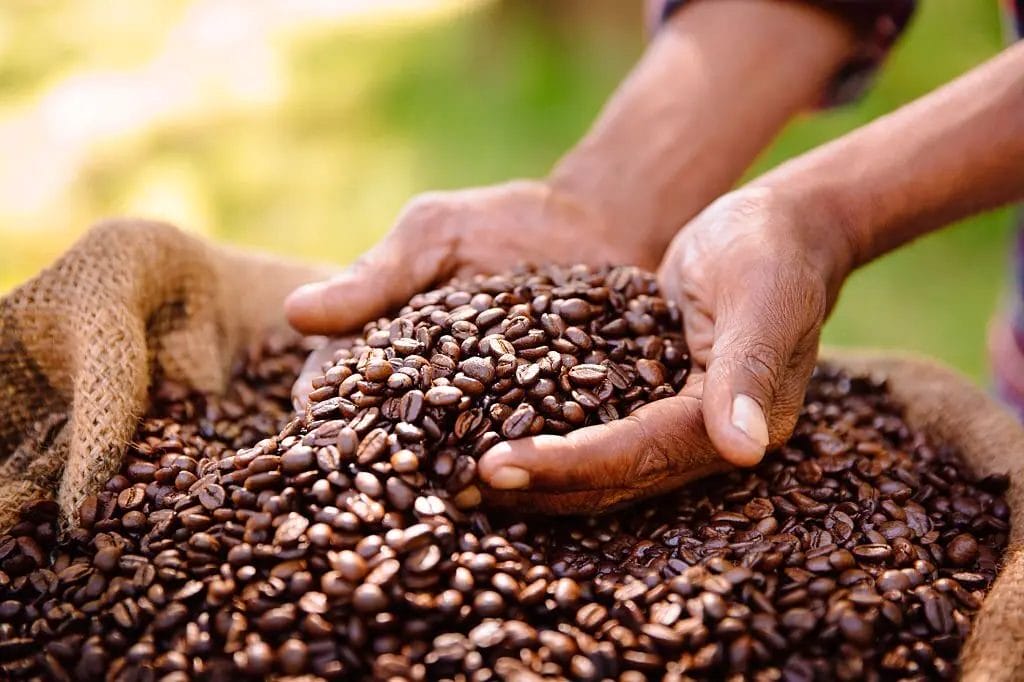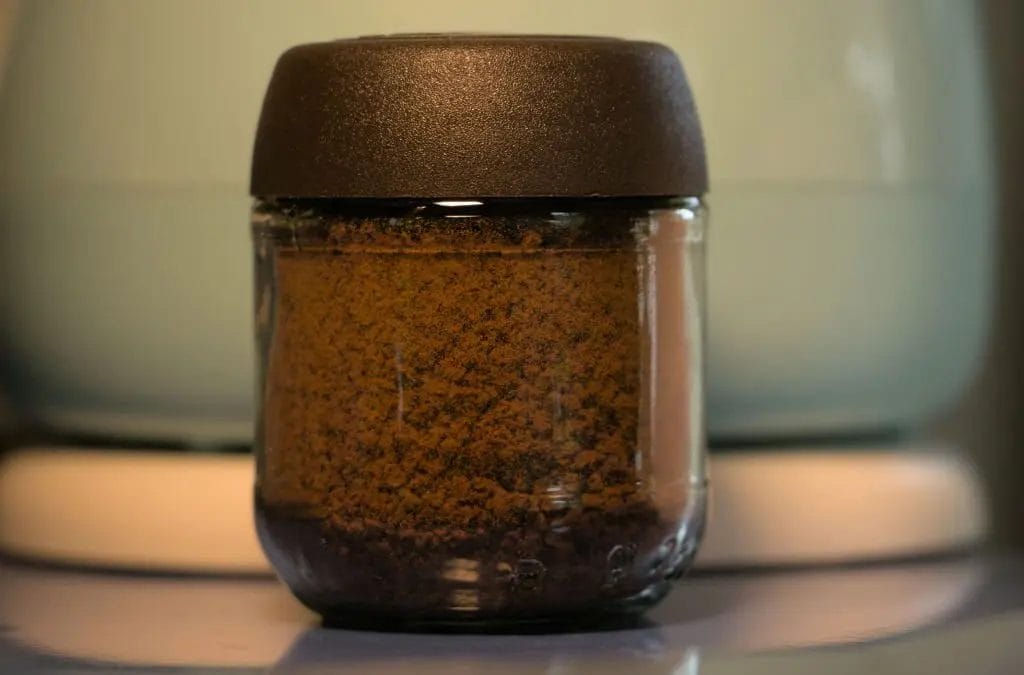Whether your morning cup of coffee is organic or not, you could argue that any coffee is good as long as the quality is there. But if you took the overall aspect into consideration, which one would you choose? Here, we present our piece on regular coffee vs organic coffee.
So, what’s it going to be?
Definition Of Organic Coffee

Organic coffee is simply coffee that is grown without using any artificial compounds during the entire production process. The compounds include:
- Chemical-based fertilizers
- Genetically Modified Organism (GMO)
- Pesticides
- Synthetic fertilizers
If you’re conscious about your health and the environment, organic coffee should be your go-to choice. The entire process of organic coffee supports the welfare of the environment, the farmers, and of course, the consumers.
There are second thoughts about organic coffee, however. No matter the food or drink that is a product for sale anywhere around the world has to maintain a certain level of quality, so many just slap a label on the product and call it a “certified organic product,” which obviously is a scam.
But even then, everyone should take safety measures to ensure that the most organic products reach the masses because food and drink standard regulations vary depending on nations and continents.
All the complications aside, why would you want to eat/ drink chemical-laced food, knowing there was chemical in it, when you can pick a better option?
Differences Between Regular Coffee & Organic Coffee

There’s a lot of complicated mumbo-jumbo throughout the rest of the sections, so if you don’t want to read through it all, it’s completely understandable; here’s the summary:
| Regular Coffee | Organic Coffee |
| The farming method contains a high amount of pesticides and chemicals | The farming method is completely pesticide-free |
| Plants are grown in direct sunlight | Plants are grown in partial sunlight |
| Develops diseases over time | Has a lower chance of developing diseases |
| Most of the natural compounds lost during processing | Contains natural compounds |
| Has moderate health benefits | Has amplified health benefits |
You might be thinking, are regular coffee drinks really THAT bad? But, when you go into the details, you start to realize that there’s more in the details that point out how superior organic coffee is.
Difference #1: Farming Methods
Regular coffee crops are considered one of the most heavily chemically treated agricultural commodities in the world.
As a result, regular coffee crops and coffee beans don’t only harm those who drink them; everyone associated with regular coffee production is also exposed to great amounts of risks.
To top it all off, regular coffee production is also harmful to the environment, as the pesticide affects the atmosphere nearby.
Here’s how the standard farming method goes from the perspective of a regular coffee farmer:
- Start by fumigating the soil to get rid of natural fungicides
- Fertilize the soil with chemical fertilizer (petroleum-based)
- Soak the coffee bean in insecticides and fungicides before planting
- After planting, add more chemicals to the irrigation water to keep insects away
- Once the plants start growing, keep spraying weedicide on the plants to kill any unwanted weed
With all the chemicals in use, even before the beginning of the process, I’m surprised that we don’t have reports of strange mutations coming in from the coffee plantation areas.

Whereas for organic coffee, the farmers use either old coffee pulps or animal manure as fertilizers, which are 100% organic and natural.
The farmers don’t have to worry about insects or weeds as much in terms of organic coffee production.
But in the event of a weed issue, the organic coffee farmer can go one of three ways:
- Use a natural gas flame weeder to burn off the weed
- Using herbivorous animals to clean the weed by feeding them
- Removing the weed with their own hands
Difference #2: Access To Sunlight
Regular coffee production takes place under a full ray of sunshine. While exposure to the sun can be a good deal, overexposure can also sometimes harm the plants and can lead to using more chemicals to maintain stability.
In the case of organic coffee farming, the farmers use larger trees to provide shade to smaller coffee shrubs and trees. This way, the coffee trees receive a balance of shade and sunlight.
Some farmers even create a partially shaded environment to control the amount of sunlight a coffee tree can get. As a result, the final, shade-grown coffee products coming out of organic farming are more diverse since the coffee trees change their properties to adapt to different shades of light.
Difference #3: Disease Development
In the battle of regular coffee vs organic coffee, regular coffee plants have a higher chance of contracting different diseases during production. The main reason behind it is the chemicals used for production.
All the chemicals used in the process have their fair share of side effects, and some of them can affect the plant negatively by reducing their damage resistance.

Note that the chemicals in regular coffee growing methods don’t only damage the plants. The chemicals damage:
- The plants
- The surrounding environment
- The farmers
- The consumers (you)
Organic coffee plants can get affected by diseases too. Still, the chances are very low since the plants build up a natural resistance to different plant-based diseases and insects over time.
Having fun Nomies? Check out our piece on drip coffee maker vs espresso machine.
DIfference #4: Processing
When regular coffee production is complete, the coffee beans go through heavy chemical-based processing to remove the chemicals introduced to the beans during production.

As for organic beans, all the farmers need to do is wash them to get rid of dirt and possible germs, and there are no heavy chemicals involved in the processing state of organic production.
Difference #5: Health Benefits
Though you already know that regular coffee, despite its chemical-riddled manufacturing, has a lot of health claims. When you’re drinking organic coffee, you’ll be getting the same benefits, but the effects will simply be amplified.
Here’s a shortlist of the benefits of ground coffee of organic origin:
- Improved focus and concentration
- Improved physical activity
- Decreased rate of stress and depression
- Reduced chances of type 2 diabetes
- Reduced risk of liver cirrhosis and other liver diseases
- Reduced risk of Alzheimer’s disease
- Reduced risk of Parkinson’s disease
- Reduced risk of sudden death due to heart failure/ stroke
- Contains chemical-free compound that doesn’t have side effects on your body
- Natural antioxidants are prevalent in coffee since the production process doesn’t take away the nutrients.

Had fun reading regular coffee vs organic coffee?
You’ll love to read our piece on yerba mate vs coffee.
Bottom Line
Though the idea of regular coffee vs. organic coffee is thought-provoking, it’s evident that organic coffee is clearly the better choice with everything in consideration.
The next time you head to the local supermarket to pick your next batch of coffee, try to select and buy an organic growing variation of your favorite coffee, and support the industry you love so much.
Cheers!
FAQs
Yes, since organic coffees are free of any harmful chemical compounds and have added health benefits, it’s the best choice for any coffee drinker.
We would pick organic coffee for sure. It is more healthy with the same dose of caffeine as regular coffee, but there is also decaf coffee that is organic as well.
Organic coffee has a more detailed flavor profile since all the natural qualities of the coffee beans are entirely preserved throughout the entire production. As a result, the final cup of coffee also has a lot of subtle flavors many regular coffees don’t have.
Regular, conventional coffee is also called “non organic coffee” since the production method doesn’t follow any organic procedures.
There was a time when authentic organic coffee would burn a hole in your pocket, but recently organic coffee beans have become nearly as affordable as regular coffee, thanks to the continuous efforts of coffee roasters, farmers and coffee management worldwide.

